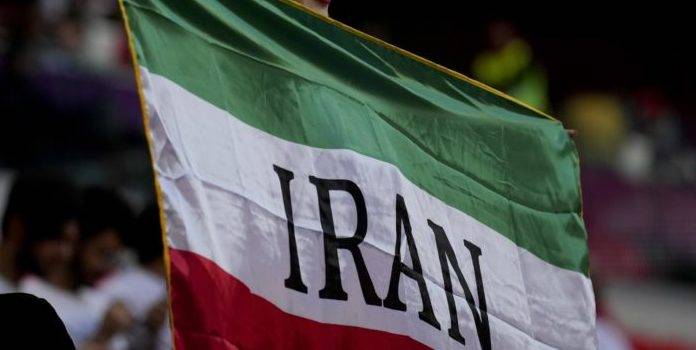(Ken Silva, Headline USA) The Justice Department signaled Friday that it intends to keep classified information secret in the case of Asif Merchant, the Pakistani man who allegedly tried hiring two hitmen in an Iranian-sponsored assassination plot against Donald Trump.
As Headline USA has detailed, the notion that Iran conspired to assassinate Trump is highly dubious. In the Merchant case, the two hitmen he attempted to hire were undercover FBI agents introduced to him by one of their informants. Merchant appears to have been an unwitting dupe in an FBI sting operation.
However, the evidence that would prove whether Merchant was a legitimate assassin or an FBI patsy may never see the light of day. The DOJ said in a Friday motion that it intends to exercise Section 4 of the Classified Information Procedures Act, which allows the U.S. government to keep state secrets just that: secret—even if it negatively impacts the rights of a defendant.
🚨IMPORANT: The DOJ has signaled that it will exercise its "state secrets privilege" to suppress evidence in the case of Asif Merchant, the the Pakistani who tried hiring 2 undercover FBI agents in the so-called Iran assassination plot against Donald Trump.
The state-secrets… pic.twitter.com/AlVBz1ZI5e
— Ken Silva (@JD_Cashless) December 20, 2024
Indeed, courts have ruled that CIPA “provides a means for applying the state-secrets privilege to classified information which, in ordinary circumstances, would be discoverable. Proper application of that privilege requires balancing of the government’s need to protect national security with the right of a defendant to mount a full defense,” according to the DOJ’s motion.
As part of the CIPA procedure, “a court must balance the government’s national security interest against the defendant’s rights to present his defense,” DOJ prosecutors argued in their Friday motion.
The DOJ seeks to hold pretrial conference on Jan. 6 to set a schedule for the government to file motions to keep evidence secret via CIPA.
The DOJ has exercised CIPA in the past to keep damning government scandals from the public.
For instance, former Venezuelan Gen. Clíver Antonio Alcalá Cordones was charged in March 2020 with participating in a narco-terrorism conspiracy with the country’s leader, Nicolás Maduro. According to the DOJ, Cordones conspired with Maduro, other top Venezuelan regime officials, and members of Colombia’s Fuerzas Armadas Revolucionarias de Colombia to ship cocaine to the United States.
However, Cordones outed himself as a CIA asset who participated in the failed CIA-sponsored coup against Maduro in March 2018. Cordones attempted to prove this in court in 2022.
“Cordones’ activities were communicated at the highest levels of a number of U.S. government agencies, including the Central Intelligence Agency (CIA), Treasury Department, the National Security Council, DEA [Drug Enforcement Agency], and DOJ,” the Venezuelan’s lawyers argued in a February 2022 motion.
“Such evidence casts doubt on the government’s theory of prosecution and, to the extent the government is able to prove such a conspiracy, would support a defense of withdrawal from any such conspiracy.”
No state secrets for you!
Judge Hellerstein, in less than 24 hours, grants prosecutors' request to keep secret classified materials involving Venezuela that U.S. intelligence officials say would bring "serious damage to national security." https://t.co/vZerV6zGRC
— Joshua Goodman (@APjoshgoodman) February 9, 2022
However, the DOJ successfully invoked Section 4 of CIPA in response to Cordones’s motion. A judge ruled that the “disclosure of the classified materials … to the defense or the public could reasonably be expected to cause serious damage to the national security. Accordingly, it is ordered that the government motion is granted, and the classified materials … need not be disclosed to the defense.”
Cordones pled guilty last year and was sentenced to 260 months in prison in April.
Ken Silva is a staff writer at Headline USA. Follow him at x.com/jd_cashless.

